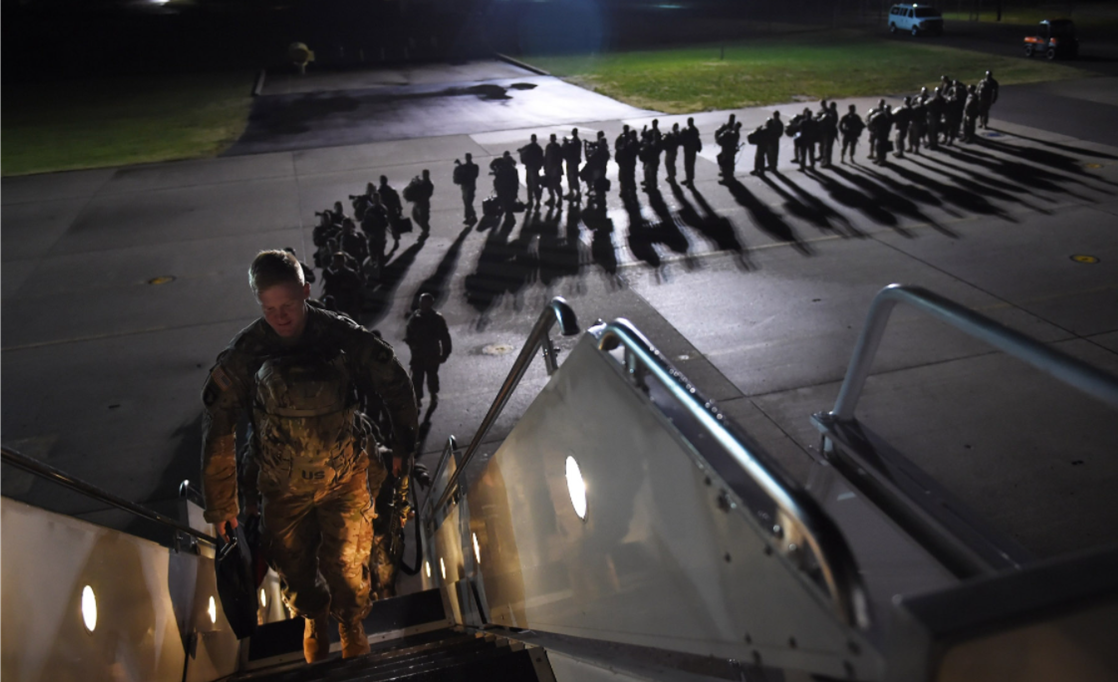Following the U.S.’s recent withdrawal of troops from Afghanistan after 20 years of occupation, the Taliban have claimed much of the country over the past weeks, including the capital of Kabul. Coverage from U.S. mainstream media since has ignored South Asian civilian deaths and uncritically repeated narratives from the U.S. government, which has a documented history throughout the war of lying to the public.
The key leaders of the fallen U.S.-backed government in Afghanistan are holding relaxed meetings with the political leadership of the Taliban about the formation of the new government. Little media coverage has discussed this, though information concerning their meetings will likely help journalists and the public understand the country’s situation.
According to Ryan Grim of The Intercept, media appear similarly uninterested in interrogating accountability in the war: Grim tweeted that ours would be “a different world if the media were outraged that nobody was fired for the decades of failures in Iraq and Afghanistan.”
Would be a different world if the media were outraged that nobody was fired for the decades of failures in Iraq and Afghanistan, that nobody was jailed for the fraud that blew up the global economy. That's not our world though.
— Ryan Grim (@ryangrim) August 23, 2021
Considering the consecutive administrations of George Bush, Barack Obama, and Donald Trump, David Corn agrees. Bush and Dick Cheney led the U.S. into “what would be the longest-running quagmire in American history” with little regard for the future after running the al-Qaeda-friendly Taliban out of power in Afghanistan. Corn explains, “[T]he Obama and Trump administrations were complicit in the Afghanistan catastrophe, particularly for perpetuating the national security establishment’s delusions—and lies—about the war.”
Confidential U.S. government documents obtained by the Washington Post in 2019 show damning failures through interviews with 400 insiders involved with the effort, including generals, White House officials, diplomats, and Afghan officials. The Post wrote, “senior U.S. officials failed to tell the truth about the war in Afghanistan throughout the 18-year campaign, making rosy pronouncements they knew to be false and hiding unmistakable evidence the war had become unwinnable.”
The White House and Pentagon under the Obama administration pressured the National Security Council to invent metrics and assurances painting a falsely optimistic picture of the war. Though the corruption undergirding the massive U.S. rebuilding endeavor was thoroughly reported, “Congress, the media, and the citizenry paid insufficient attention to this never-ending, going-nowhere conflict,” said Corn.
Unlike in previous wars, during which it raised taxes on the wealthy, Congress cut taxes in 2001 and 2003 as the U.S. fought in Afghanistan and Iraq. Since then, the government has been piling up debt to pay for these “Credit Card Wars.” This borrowing has raised the U.S. budget deficit, increased the national debt, and raised consumer interest rates. And unless the U.S. immediately repays the money, there will be future interest payments estimated to total over $6.5 trillion by the 2050s. Meanwhile, defense contractors and corporations have been profiteering from the “Camo Economy” in ways obscured to the public.
Further economic tolls of the war include the opportunity cost of spending on war instead of social investments in Afghanistan—less than 2% of the U.S. spending in the country reached the Afghan people in the form of basic infrastructure or poverty-reducing services. For Project Syndicate, Jeffrey D. Sachs wrote,
“The US could have invested in clean water and sanitation, school buildings, clinics, digital connectivity, agricultural equipment and extension, nutrition programs, and many other programs to lift the country from economic deprivation. Instead, it leaves behind a country with a life expectancy of 63 years, a maternal mortality rate of 638 per 100,000 births, and a child stunting rate of 38%.”
Despite these past revelations, several major U.S. newspapers have recently been eager to echo official justifications for the war and occupation, such as the New York Times and the Los Angeles Times. Both outlets touted the purity of U.S. values in the face of harrowing contradictions. A review by Media Matters shows that mainstream media favored the spin for a permanent military occupation before the U.S. withdrawal, and have since welcomed former Bush administration members as experts on the current situation, despite their critical errors.
Other outlets including the Boston Globe, the Wall Street Journal, and the Washington Post have also shown disregard for South Asian civilian lives lost. As FAIR notes, they refer to the deaths of “more than 2,400 American troops” during the war in Afghanistan, and those of 66,000 Afghan fighters, omitting the civilian deaths of more than 47,000 Afghans and over 24,000 Pakistanis. And now, as thousands of people flee Afghanistan, right-wing media have been fearmongering about Afghan refugees seeking asylum in the United States.
“The American public has been conned about Afghanistan for two decades by successive administrations,” David Corn wrote. “The war in Afghanistan—prosecuted in ignorance and sold with hubris and falsehoods—has been a scandal of the highest order, a fundamental violation of the national trust” for which the perpetrators in the U.S. government haven’t been held accountable.
The U.S. withdrawal from Afghanistan now presents a crucial opportunity for mainstream media to inform the American public: rather than spread propaganda, fear, and lies about the war, media should center the human cost and truths that several presidential administrations have attempted to keep secret.
Photo by Matt McClain / The Washington Post

